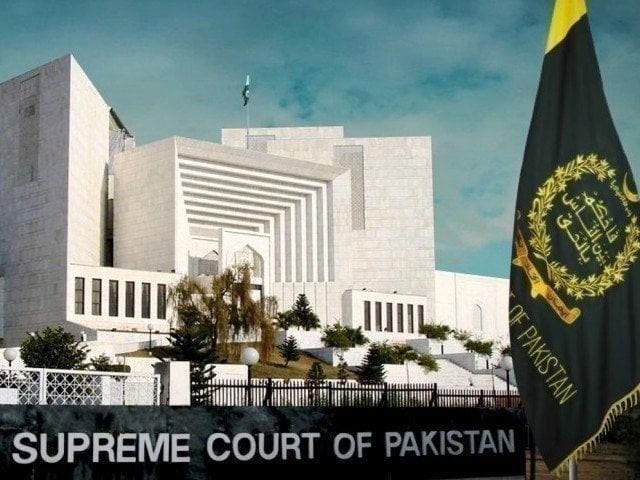SC judge says curbing terror not judiciary's job
Justice Mandokhail notes that courts cannot deliver verdicts if they start pondering repercussions

A member of the constitutional bench (CB) of the Supreme Court has observed that it is the job of parliament to curb terrorism, and not of judiciary.
On Monday, the counsel for the Ministry of Defense, Khawaja Haris, continued his arguments before a 7-member CB, hearing intra-court appeals against the October 2023 order of the apex court proscribing trial of May 9 rioters in military courts.
Haris contended that if a civilian attacks a military installation or steals some military hardware like a tank, then the Pakistan Army Act, 1952the law that deals with formation of military courtswill be applied to that person.
Justice Jamal Khan Mandokhail asked Haris if a First Information Report (FIR) would also be lodged in such a scenario as the question is about the trial of such an accused.
"We want to know how the FIR [for such an attack/stealing] will be registered; who will investigate the case and where will the trial be held," he added.
The counsel for the Ministry of Defense replied that those who make laws [parliament] will determine as to where the trial for the crime of attacking a military installation is to be held. Haris added that under the Pakistan Army Act, 1952, the armed forces are entitled to arrest such attackers.
Justice Muhammad Ali Mazhar noted that it is a legal requirement to register an FIR before arresting an accused. Justice Syed Hasan Azhar Rizvi also reminded the counsel that after an arrest, an accused is also supposed to be presented before a magistrate.
Justice Jamal Khan Mandokhail noted that courts are only supposed to ensure that trials are held according to the Constitution.
"To control terrorism is the job of parliament, not that of judiciary. Courts cannot operate if they start pondering whether a verdict would result in reducing terrorism or increase terrorist activities," he added. The CB will resume hearing the case today.
Civil and military leadership of the country decided to hold the trial of over 100 of the people, who attacked and vandalized military installations and memorials after the arrest of former prime minister Imran Khan on May 9, 2023 in military courts.
A number of petitioners challenged the move in the Supreme Court, whose five-member larger bench on October 23 annulled the military courts trials.
The bench - headed by Justice Ijazul Ahsan, and comprising Justice Munib Akhtar, Justice Yahya Afridi, Justice Sayyed Mazahar Ali Akbar Naqvi, and Justice Ayesha Malik - issued the order on the petitions filed by the PTI chief and others.
Four judges out of the five declared that Section 2(1)(d) of the Pakistan Army Act, 1952 and 59(4) (civil offences) are also "ultra vires the Constitution and of no legal effect".
"Without prejudice to the generality of the foregoing the trials of civilians and accused persons, being around 103 persons [...] shall be tried by criminal courts of competent jurisdiction established under the ordinary and/or special law of the land in relation to such offences of which they may stand accused," the short order read.
The government later filed intra-court appeals against the verdict, which another larger SC bench suspended in November 2023 through a majority vote.

























COMMENTS
Comments are moderated and generally will be posted if they are on-topic and not abusive.
For more information, please see our Comments FAQ